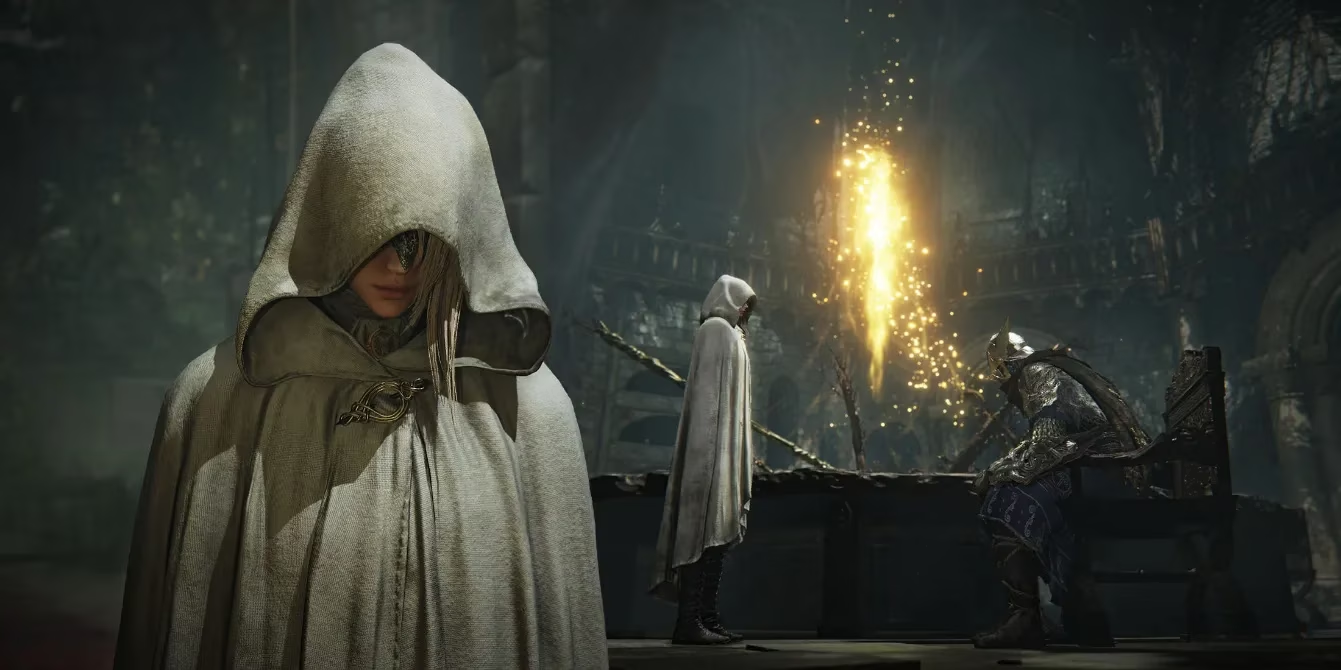Nightreign's Paradox: A Soulslike Wanderer's Reflections
Elden Ring Nightreign redefines FromSoftware's genre with intense roguelike challenges, testing freedom and pacing in a groundbreaking, cooperative experience.
I stand at the precipice of 2025's gaming landscape, watching as FromSoftware's latest experiment unfolds before me like some strange digital fever dream. Elden Ring Nightreign has arrived, and with it comes a seismic shift in what we've come to expect from the architects of suffering who crafted the Soulsborne legacy. This isn't just another dance with death in the moonlight—it's something altogether different, a cooperative roguelike that wears the skin of Elden Ring while beating with a foreign heart.

I've spent countless hours traversing the landscapes of FromSoftware's creations, feeling that peculiar mixture of dread and wonder that only they seem capable of conjuring. But Nightreign has me questioning everything I thought I knew about this beloved genre. It's like ordering your favorite comfort food only to discover the chef has decided to deconstruct it into molecular gastronomy—fascinating, perhaps brilliant, but not what my soul was hungry for.
The roguelike elements feel like a square peg being hammered into the round hole of Soulslike design philosophy. Each session demands perfection from your team, with the game's unforgiving clock ticking away like some medieval doomsday device. One teammate falters, and it's curtains for everyone. Talk about throwing someone under the bus—except in this case, the bus is a terrifying eldritch horror that feeds on frustration.
The Freedom Paradox
What strikes me most about Nightreign is how it strips away the very thing that made Soulsborne games revolutionary: freedom. These games have always been about your journey, your choices, your growth. As my gaming buddy would say, "It's not about the destination, it's about the detours where you get your ass handed to you repeatedly."
In Nightreign, I find myself:
-
Locked into pre-defined playstyles
-
Racing against an unrelenting clock
-
Dependent on strangers who can't even hear my desperate pleas
The roguelike structure itself isn't inherently problematic. I can appreciate the loop of strengthening your character for that final confrontation. But when the experience becomes so conditional that a single weak link in your team spells doom? That's when we've crossed from "challenging" into "you've got to be kidding me" territory.
The Pace That Breaks
The pacing of Nightreign feels like being on a runaway train—there's no time to breathe, to explore, to soak in the atmosphere that FromSoftware crafts so masterfully. Traditional Soulsborne games are like complex wines; they demand to be savored, their notes of despair and triumph appreciated fully. Nightreign, by contrast, is a shot of cheap tequila being forced down your throat while someone yells, "Hurry up, we've got places to be!"
I miss those quiet moments of:
-
Standing atop a crumbling tower, surveying the twisted beauty below
-
Carefully reading item descriptions to piece together the fractured lore
-
Experimenting with different approaches to overcome seemingly insurmountable challenges
Instead, I'm constantly on the move, no time to stop and smell the corpses. It's like the difference between a thoughtful hike through ancient ruins and a frantic obstacle course race where the obstacles are trying to kill you.
The Innovation Conundrum
Let's not throw the baby out with the bathwater, though. Innovation is the lifeblood of gaming, and FromSoftware deserves props for swinging for the fences. As they say, "no guts, no glory." Nightreign does have genuinely good ideas lurking beneath its frustrating exterior—ideas that might shine brighter with different execution.
The communal struggle against overwhelming odds can create moments of unexpected camaraderie. There's something poetic about strangers coming together, wordlessly coordinating through nothing but shared determination and the language of emotes. When it works, it really works, creating a symphony of synchronized slaughter that feels almost transcendent.
But these moments are islands in a sea of conditional frustration. The beauty of traditional Soulsborne games is that your failures are yours alone to overcome. Your victories are earned through personal growth, not dependent on whether xXDarkSoul420Xx decided to go AFK mid-boss fight.
The Future's Uncertain Path
As I look toward the horizon of what Soulslikes might become, Nightreign stands as both warning and possibility. It suggests that while the boundaries can be pushed, perhaps they shouldn't be broken entirely. The soul of a Soulslike—if you'll pardon the obvious wordplay—lies in that delicate balance between punishment and possibility, between structure and freedom.
The experiment of Nightreign reminds me of watching a virtuoso musician try their hand at a completely different instrument. There's skill there, undeniably, but also a sense that something essential has been left behind in the transition.
Perhaps the future of Soulslikes isn't about radical reinvention but thoughtful evolution. Maybe it's about finding new paths within the existing wilderness rather than clearing it entirely to build something unrecognizable. After all, even the most punishing journeys need to feel like your journey.
I wonder if FromSoftware will take the lessons of Nightreign to heart. Will they see the mixed reception as a sign to retreat to safer ground, or will they find ways to refine these experimental elements until they feel as natural as the dodge roll and bonfire? Only time will tell, and in the meantime, I'll be here, dying repeatedly, wondering if I'm missing something profound or if I'm just stuck in a particularly sadistic experiment.
Is Nightreign the future of Soulslikes, or merely a fascinating detour? And if it is the future, do we want to go there? Sometimes when you stare too long into the abyss of innovation, it stares back and says, "Git gud... differently."